Symptoms of a ruptured eardrum
First things first, let's look at what your eardrum is and what a rupture feels like (or you can skip straight to our section on how to sleep with a ruptured eardrum if you prefer).
Your eardrum is an intricate and essential part of your ear anatomy.
Scientifically termed the tympanic membrane [1], it's a thin flap of skin tightly stretched like the top on a drum, which vibrates when sound hits it. 🎶
It divides your outer and middle ear and enables hearing.
An eardrum perforation (or rupture) occurs when there's a tear or a hole in this membrane.
But what does a tympanic membrane perforation (eardrum rupture) feel like [2]?
Understanding the symptoms of a ruptured eardrum will ensure you can quickly take action to start healing and reduce pain.
Symptoms of ruptured eardrums include:
- Hearing loss.
- A ringing or buzzing sound (this could also be a sign of tinnitus [3]).
- An earache or ear pain.
- Itching in your ear.
- Clear fluid, pus or bleeding from the ear.
- Feeling dizzy.
- A high temperature.
A ruptured eardrum is definitely not a pleasant experience. 😬
But as bad as these symptoms seem, there are still ways to get a decent night's sleep.

We'll discuss more in our 'How to sleep with a ruptured eardrum' section, but first, let's take a look at what might have caused your ruptured eardrum. 👇
Common causes of ruptured eardrums
A ruptured eardrum is, unfortunately, a condition that can happen to anyone, regardless of age or lifestyle. 😓
It can occur in just one ear but may affect both ears.
But what causes eardrums to rupture?
Common causes of eardrum ruptures include:
- Ear infections and sinus infections are among the leading causes of eardrum ruptures among children, particularly when a build-up of puss in the ear canal or middle ear causes pressure and needs somewhere to go.
- Injury, for instance, from a nasty knock on your ear.
- Foreign objects like cotton buds can also cause ruptures.
- Extremely loud noises, for instance, from a concert, machinery, or explosions, can cause acoustic trauma ruptures.
- Sudden changes in air pressure from flying or scuba diving could also lead to ruptured or popped eardrums.
If you have experienced one of these events recently and are now suffering, you may have ruptured your eardrum.
Now we know what they feel like and what can cause them, it's time to get into how to sleep with burst eardrums. 👇
How to sleep with ruptured eardrums
Managing sleep with a ruptured eardrum doesn't have to be a nightmare!
And getting a good night's sleep can contribute to faster healing [4] and generally feeling better.
Night is the time for regeneration. A vital rhythm for humans...

Björn Steinbrink
Sleep Coach
Between the pain and its potential to disrupt your normal sleeping position, you may find sleep slipping out of your grasp.
But that doesn't have to be the case.
Let's dive into falling asleep fast (with recommendations on the best sleeping positions) if you have a ruptured eardrum. 😴
Should you sleep on the side of a ruptured eardrum?
While you should never sleep directly on a ruptured eardrum, there's good news for side sleepers.
You can sleep on the non-affected side of your head.
So, if your right eardrum is ruptured, you'll want to sleep on your left side with your right ear facing up and away from your pillow. 🛌
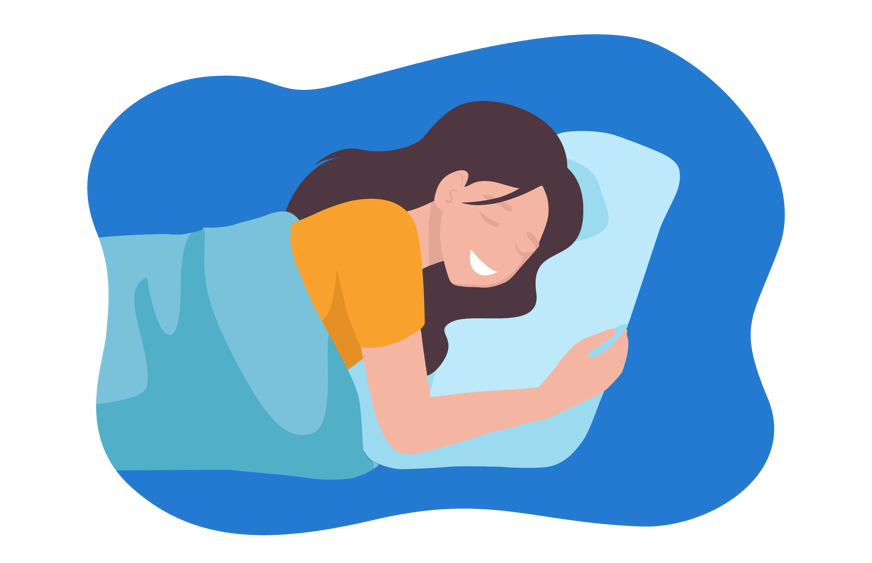
This strategy minimises pressure and irritation on the affected ear, aiding your comfort throughout the night.
But what if you're a back sleeper or, even trickier, both of your eardrums are perforated?
Let's take a look. 👀
Sleeping on your back with ruptured eardrums
Whether you sleep on your back or are dealing with two ruptured eardrums, fear not! 🙌
Sleeping on your back is not just feasible but one of the best sleeping positions for ruptured eardrums.
It's recommended to slightly elevate your head when sleeping on your back with perforrated eardrums.
This can be achieved by adding an extra pillow beneath your head or using a body pillow. 🛏️

This simple adjustment reduces pressure on the eardrums [5], making it easier for you to drift off to sleep.
Whether dealing with one perforated eardrum or two, this positioning can make a big difference to your comfort and sleep quality. 😴
Caring for ruptured eardrums at home
Luckily, ruptured eardrums usually heal by themselves in 2 to 8 weeks.
In the meantime, there are several things you can do at home to help. 🏠
What you should do:
- Take over-the-counter pain medications like paracetamol or ibuprofen as recommended.
- A warm, dry compress over the affected ear can also provide much-needed comfort.
However, there are a few things you should avoid doing while your eardrum is on the mend. 👇
What not to do when you have ruptured eardrums
As already discussed, you shouldn't put any pressure on the ruptured eardrum
So for those wondering, "What side should I sleep on with a ruptured eardrum?" - Sleep on the opposite side of the burst eardrum, on the unaffected ear.
But what else shouldn't you do when you have a ruptured or burst eardrum?
Let's take a look.
What not to do:
- Get water in your ear.
- Insert anything, such as cotton swabs, into your ear.
- Blow your nose too hard (this can cause further damage during the healing process).
- Fly or do any activities involving pressure changes.
Avoiding these things will give your eardrum (or eardrums) the best chance of healing. 🩹
Ear infections are one of the most common problems faced with eardrum ruptures.
Not putting anything (including water) in your ear is an effective way to prevent an ear infection.
Of course, you can't really avoid showering while your eardrum is healing and taking a warm bath could help you relax, reducing the pain.
So what do you do? 🤔
A handy tip is to put a bit of Vaseline on a cotton ball and gently place it in the outer ear.
Just remember not to push it too far into your ear.
How long do ruptured eardrums take to heal?
Wondering how long it takes for a ruptured eardrum to heal? 🤔
Generally, it can take anywhere from a few weeks to about two months for a ruptured eardrum to heal.
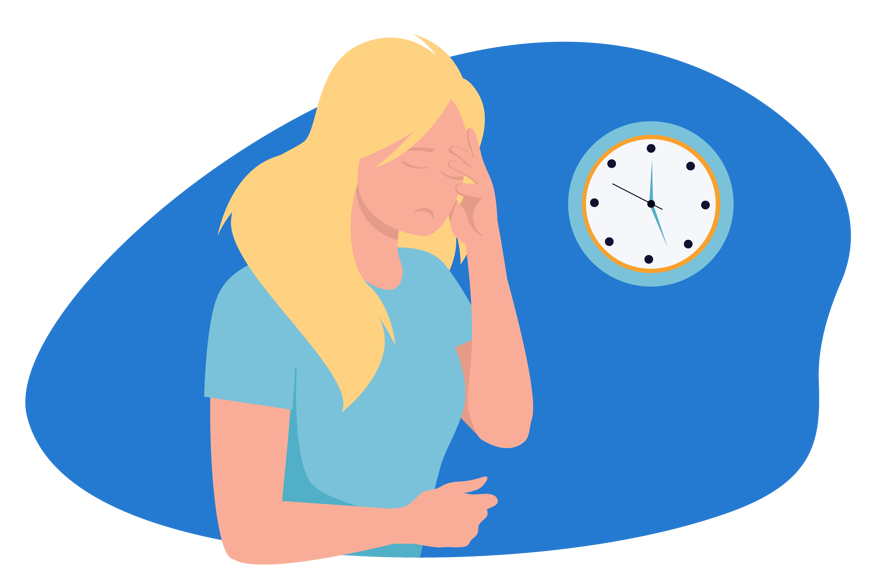
But the healing process may vary from person to person.
If your eardrum isn't getting any better or it's taking longer than expected, it's essential to seek medical advice. 🏥
When to go to the doctor for ruptured eardrums
If you haven't seen any improvement or healing after a few weeks, it's time to seek medical attention.
When to see a doctor:
- Sudden or worsening hearing loss over several days or weeks.
- If your ear bleeds or there's discharge accompanied by hearing loss.
- Experiencing dizziness, fever, nausea, or vomiting.
- If you have anything stuck in your ear.
If you're experiencing severe pain and are worried about your eardrum healing, don't hesitate to call 111. 📱
They'll help point you in the right direction.
While burst eardrums usually heal on their own, a doctor can help you get treatment for a perforated eardrum.
Typically, perforated eardrum treatments include prescribing antibiotics to prevent or treat an infection.
Completing the full course of antibiotics for a ruptured eardrum prescribed by your doctor is crucial for effectively treating any underlying infection, promoting healing, and preventing antibiotic resistance. 👍
In some extreme cases, treatment options may include a surgical procedure (known as a myringoplasty).
This will repair the eardrum if it isn't healing on its own.
Can you sleep with a ruptured eardrum?
While we can't guarantee the best night's sleep, it's certainly possible to get those zzz's in even when you have a ruptured eardrum (or eardrums). 🥳
Sleeping on your back with your head elevated is the best position for reducing pressure.
Or you can sleep on the opposite side of your body if you have one ruptured eardrum.
Over-the-counter pain relievers like ibuprofen and paracetamol can also help provide comfort when you have a ruptured eardrum.
Take a look at some of our favourite comfort items for an even better night’s sleep:
Table of Contents
Symptoms of a ruptured eardrum
Common causes of ruptured eardrums
How to sleep with ruptured eardrums
Caring for ruptured eardrums at home
What not to do when you have ruptured eardrums
How long do ruptured eardrums take to heal?
When to go to the doctor for ruptured eardrums







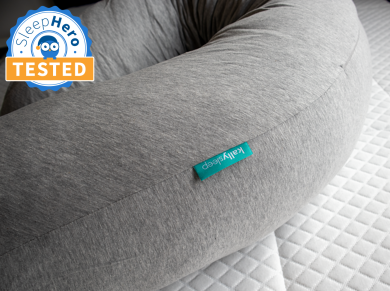


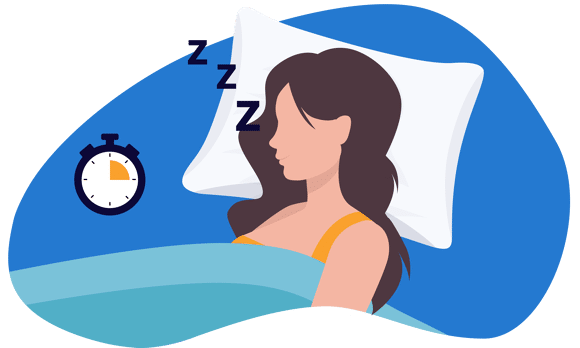
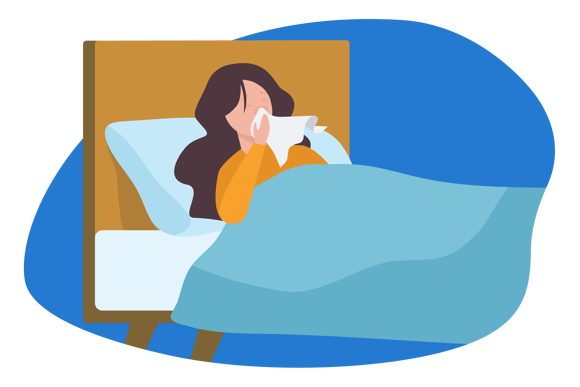


Alternatively, message us directly via the Contact Us page.